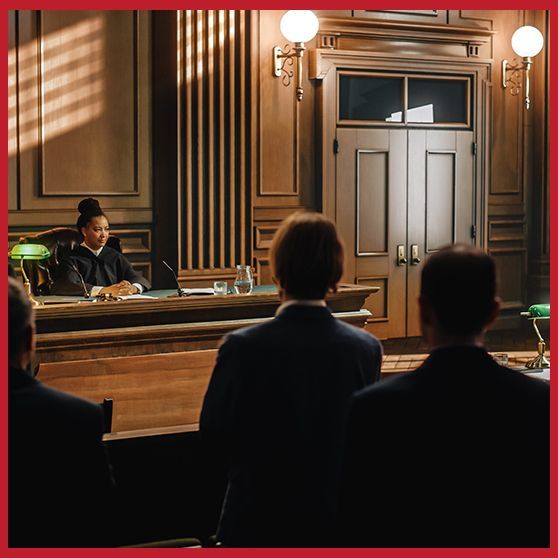Just How a Lawyer Can Aid With Your Habeas Corpus Petition
Recognizing the Duty of a Post-Conviction Legal Representative in Looking For Justice After a Criminal Sentence
In the complicated landscape of post-conviction legal procedures, the role of a post-conviction legal representative is pivotal in browsing the course to justice after a criminal sentence. Past the confines of a trial, these attorneys engage in a complex technique aimed at revealing new evidence, difficult lawful errors, and supporting for their clients' rights. The ins and outs of post-conviction job call for a blend of legal acumen, investigative skills, and critical assuming to unravel the complexities of a situation and pursue opportunities that might have been ignored or underexplored. As the quest of justice extends beyond the confines of first procedures, the role of a post-conviction legal representative arises as a beacon of expect those looking for to remedy injustices and redeem their rights within the lawful system.
Post-Conviction Lawyer's Investigatory Job
Post-conviction legal representatives participate in precise investigatory job to uncover brand-new proof, procedural mistakes, or misbehavior that could possibly result in overturning a sentence. This investigative stage is vital in the post-conviction process as it intends to determine any forgotten details or lawful errors that might have affected the outcome of the first trial. Post-conviction lawyers explore case documents, witness statements, and lawful documents with a fine-tooth comb, looking for any type of discrepancies or irregularities that can be grounds for allure.
With thorough investigation, post-conviction legal representatives aim to drop light on prospective oppressions that might have occurred during the original trial. By inspecting every element of the lawful process, post-conviction lawyers work tirelessly to uncover any type of aspects that might have affected the judgment.
Crafting Appeals and Petitions
In the search of justice after a sentence, skilled lawyers carefully craft charms and requests to existing compelling debates for the reconsideration of legal decisions. Crafting appeals and petitions requires a deep understanding of the legal system, attention to detail, and strategic reasoning. Post-conviction legal representatives analyze test documents, recognize possible mistakes or infractions of legal rights, and establish legal arguments to test the sentence or sentence.
When crafting a charm, attorneys focus on highlighting legal errors that might have influenced the result of the situation. They research case regulation, laws, and legal precedents to sustain their debates. Requests, on the other hand, might entail providing new proof that was not offered during the trial or showing modifications in the law that warrant a testimonial of the sentence.
Furthermore, post-conviction lawyers have to adhere to strict step-by-step policies and deadlines when submitting charms and petitions. They need to provide their arguments plainly and persuasively to convince the court to provide relief to their customers. With meticulous crafting of allures and petitions, post-conviction legal representatives aim to safeguard justice for individuals who have been wrongfully founded guilty or unfairly punished.

Going After Post-Conviction Alleviation
Post-conviction alleviation includes an array of lawful mechanisms made to test the validity of a sentence or sentence. Post-conviction attorneys play an essential duty in navigating these intricate treatments, ensuring that all lawful options are discovered to correct oppressions that may have taken place during the test or sentencing phase.
One typical kind of post-conviction alleviation is submitting a petition for post-conviction relief, usually based on cases of inadequate assistance of guidance, prosecutorial misbehavior, recently found proof, or constitutional infractions. Experienced post-conviction legal representatives have the abilities and expertise essential to recognize sensible lawful claims, conduct investigations, and existing engaging debates to safeguard alleviation for their customers.
Making Use Of Forensic Proof
When challenging a conviction or sentence, the tactical usage of forensic evidence can be a powerful tool in post-conviction lawful process. Forensic proof includes a large range of scientific techniques used to explore crimes and develop realities in court. Post-conviction attorneys can take advantage of forensic evidence to test the legitimacy of sentences by presenting new clinical searchings for that were not offered during the initial test.

Engaging in Sentence Modifications
Post-conviction lawyers may check out the possibility of sentence adjustments as a legal avenue to address disproportionate or unjust sentences passed on in criminal instances. Sentence alterations entail looking for modifications to the terms of a defendant's sentence after a sentence has actually happened. These adjustments can include decreasing the length of a sentence, modifying the sort of punishment imposed, or discovering different sentencing choices.
Post-conviction attorneys can pursue sentence modifications via different legal devices, such as submitting movements for sentence reduction, appealing for thoughtful launch, or working out appeal bargains for decreased sentences. They must meticulously assess the scenarios of the case, analyze the legal grounds for looking for a modification, and existing compelling arguments to the court sustaining the need for a modified sentence.
Taking part in sentence alterations needs a detailed understanding of criminal legislation, punishing guidelines, and the specific treatments involved in looking for post-conviction relief. Post-conviction attorneys play an essential duty in promoting for reasonable and just end results by challenging sentences that are unduly extreme or do not align with the concepts pop over to this site of justice.
Conclusion
In final thought, the role of a post-conviction attorney is crucial in seeking justice after a criminal sentence. Through investigative job, crafting appeals and requests, seeking post-conviction relief, using forensic proof, and engaging in sentence adjustments, these lawful professionals play a crucial role in supporting for their customers and ensuring that their legal rights are promoted within the criminal justice system. Their dedication and expertise are vital in browsing the complexities of post-conviction procedures and accomplishing a reasonable end result for individuals facing criminal convictions.